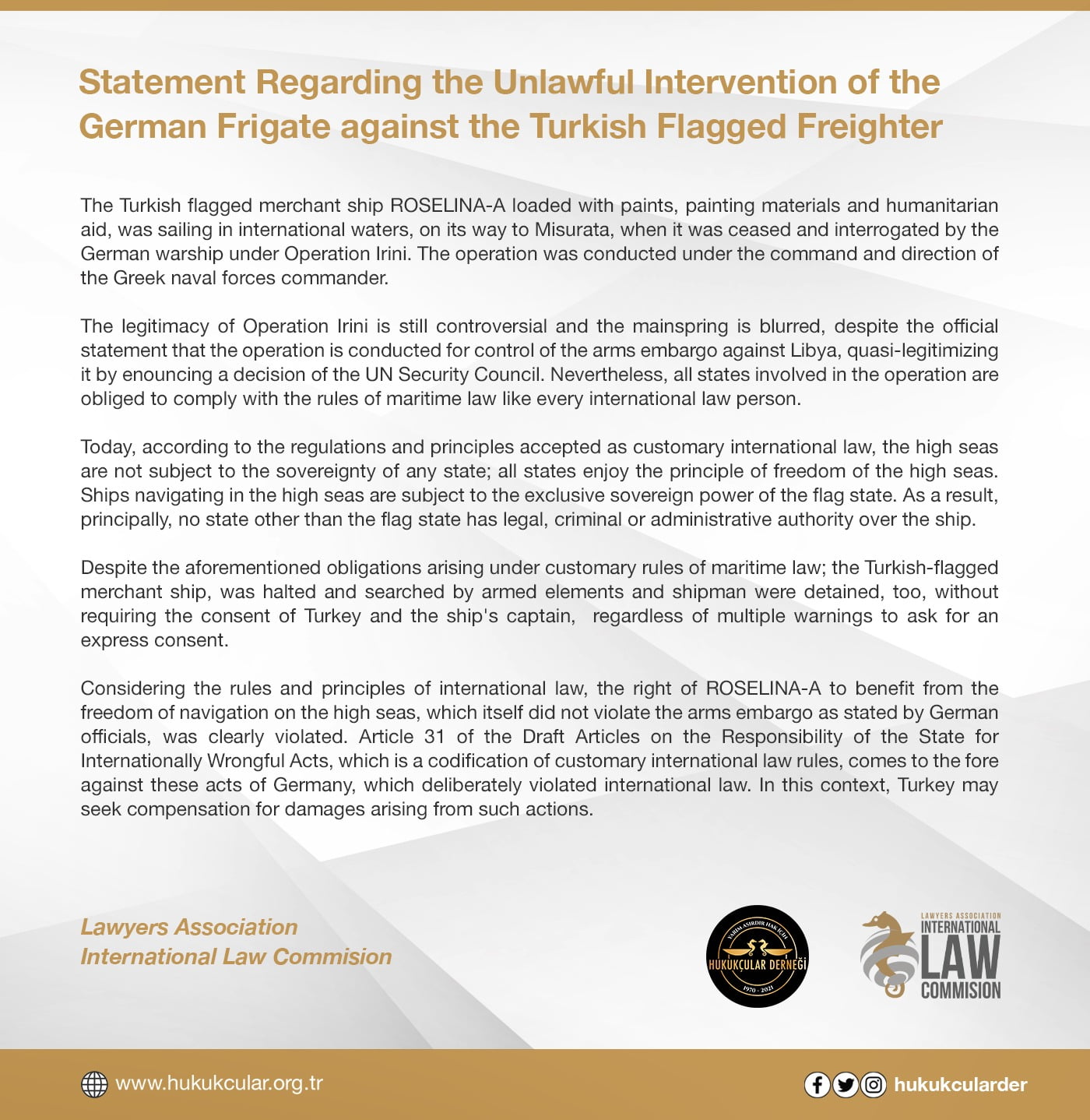Statement Regardıng the Unlawful Interventıon of the German Frıgate agaınst the Turkısh Flagged Freıghter
The Turkish flagged merchant ship ROSELINA-A loaded with paints, painting materials and humanitarian aid, was sailing in international waters, on its way to Misurata, when it was ceased and interrogated by the German warship under Operation Irini. The operation was conducted under the command and direction of the Greek naval forces commander.
The legitimacy of Operation Irini is still controversial and the mainspring is blurred, despite the official statement that the operation is conducted for control of the arms embargo against Libya, quasi-legitimizing it by enouncing a decision of the UN Security Council. Nevertheless, all states involved in the operation are obliged to comply with the rules of maritime law like every international law person.
Today, according to the regulations and principles accepted as customary international law, the high seas are not subject to the sovereignty of any state; all states enjoy the principle of freedom of the high seas. Ships navigating in the high seas are subject to the exclusive sovereign power of the flag state. As a result, principally, no state other than the flag state has legal, criminal or administrative authority over the ship.
Despite the aforementioned obligations arising under customary rules of maritime law; the Turkish-flagged merchant ship, was halted and searched by armed elements and shipman were detained, too, without requiring the consent of Turkey and the ship’s captain, regardless of multiple warnings to ask for an express consent.
Considering the rules and principles of international law, the right of ROSELINA-A to benefit from the freedom of navigation on the high seas, which itself did not violate the arms embargo as stated by German officials, was clearly violated. Article 31 of the Draft Articles on the Responsibility of the State for Internationally Wrongful Acts, which is a codification of customary international law rules, comes to the fore against these acts of Germany, which deliberately violated international law. In this context, Turkey may seek compensation for damages arising from such actions.





